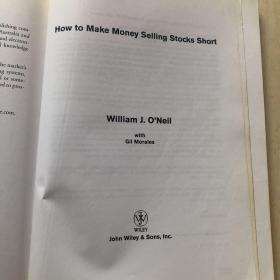how to make money warren buffett,Understanding Warren Buffett’s Investment Philosophy
Understanding Warren Buffett’s Investment Philosophy

Warren Buffett, often referred to as the “Oracle of Omaha,” is one of the most successful investors in the world. If you’re looking to make money like Buffett, it’s essential to understand his investment philosophy and strategies. Here’s a detailed guide on how to emulate his approach.
Value Investing: The Core Principle

Buffett’s investment strategy is rooted in value investing, a concept developed by Benjamin Graham. Value investing involves identifying companies that are undervalued by the market and buying their stocks at a discount. To do this, you need to analyze a company’s financial statements, including its income statement, balance sheet, and cash flow statement.
Buffett looks for companies with strong fundamentals, such as a high return on equity, a low debt-to-equity ratio, and a history of consistent earnings growth. He also values companies with a strong competitive advantage, often referred to as a “moat,” which allows them to maintain their market position and generate profits over the long term.
Long-Term Perspective

One of Buffett’s key principles is to focus on long-term investing. He believes that short-term market fluctuations are unpredictable and irrelevant to the long-term success of a company. By holding onto stocks for the long term, you can ride out market volatility and benefit from the company’s growth.
Buffett’s portfolio includes a mix of stocks, bonds, and other investments. He typically holds onto his investments for many years, if not decades. This long-term perspective allows him to benefit from the compounding effect of reinvested dividends and capital gains.
Research and Due Diligence
Before investing in a company, Buffett conducts thorough research and due diligence. He reads annual reports, financial statements, and other documents to gain a deep understanding of the company’s business model, management team, and competitive landscape.
Buffett also looks for companies with strong management teams, as he believes that good management is crucial to a company’s success. He values transparency and integrity in management, as these qualities are indicative of a company’s long-term prospects.
Understanding Market Cycles
Buffett is known for his ability to navigate market cycles. He believes that markets are unpredictable and that investors should not try to time the market. Instead, he focuses on buying high-quality companies at reasonable prices and holding onto them for the long term.
During market downturns, Buffett often looks for opportunities to buy undervalued stocks. He believes that these downturns present a buying opportunity, as they allow investors to purchase high-quality companies at a discount.
Building a Diversified Portfolio
Buffett emphasizes the importance of diversification in investing. He believes that no single stock or sector can guarantee success. By diversifying your portfolio, you can reduce your risk and increase your chances of achieving long-term returns.
Buffett’s portfolio includes a mix of stocks, bonds, and other investments across various sectors and industries. He looks for companies with strong fundamentals and a competitive advantage, regardless of their industry.
Table: Warren Buffett’s Investment Strategy in a Nutshell
| Investment Principle | Description |
|---|---|
| Value Investing | Identify undervalued companies and buy their stocks at a discount. |
| Long-Term Perspective | Focus on long-term investing and ride out market volatility. |
| Research and Due Diligence | Conduct thorough research and due diligence before investing. |
| Understanding Market Cycles | Buy undervalued stocks during market downturns. |
| Diversification | Build a diversified portfolio across various sectors and industries. |
Conclusion
By following Warren Buffett’s investment philosophy, you can increase your chances of achieving long-term success in the stock market. Focus on value investing, long-term perspective, thorough research, understanding market cycles, and diversification. Remember, investing is a marathon, not a sprint, and patience is key.




